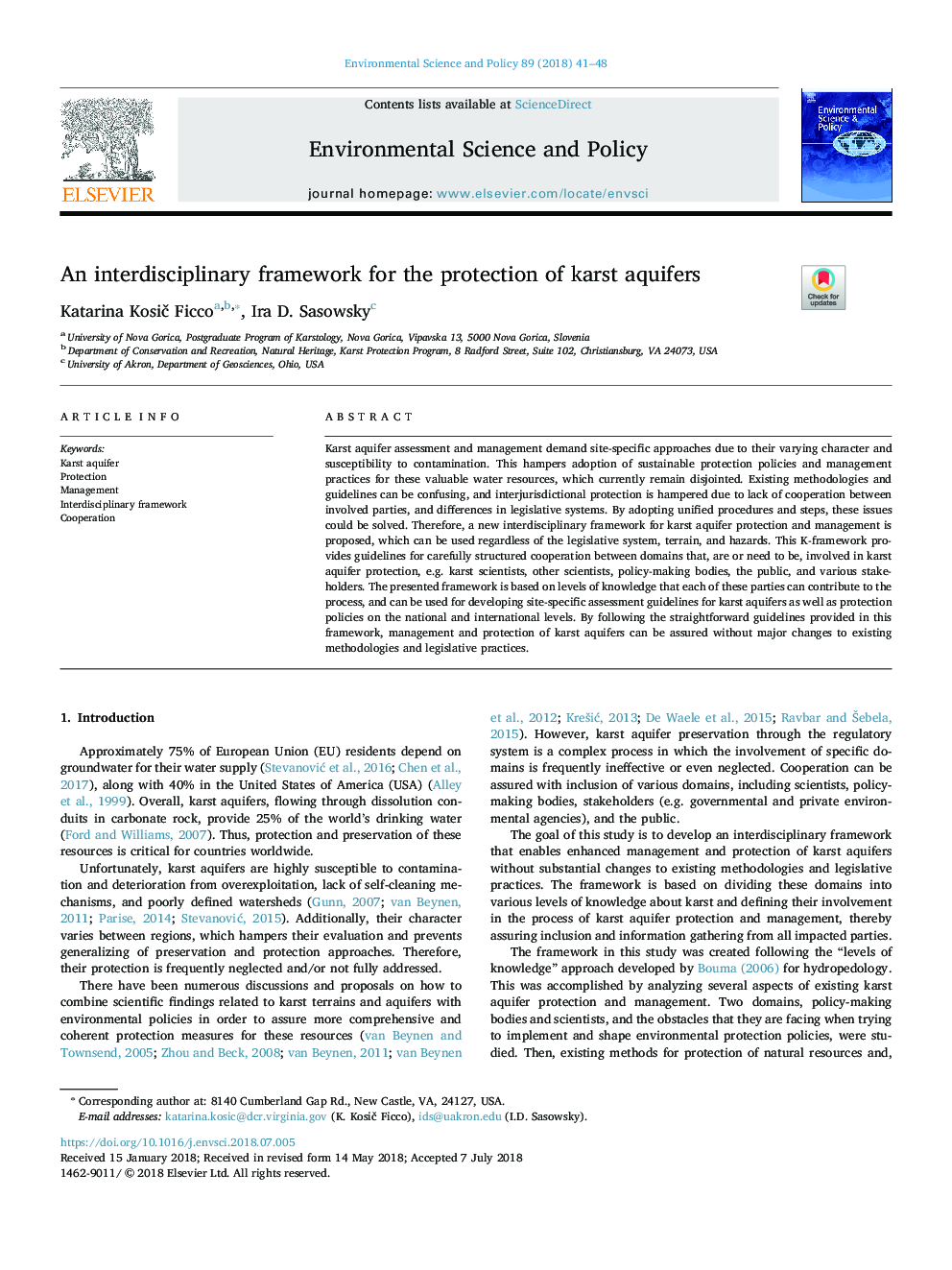| Article ID | Journal | Published Year | Pages | File Type |
|---|---|---|---|---|
| 7465616 | Environmental Science & Policy | 2018 | 8 Pages |
Abstract
Karst aquifer assessment and management demand site-specific approaches due to their varying character and susceptibility to contamination. This hampers adoption of sustainable protection policies and management practices for these valuable water resources, which currently remain disjointed. Existing methodologies and guidelines can be confusing, and interjurisdictional protection is hampered due to lack of cooperation between involved parties, and differences in legislative systems. By adopting unified procedures and steps, these issues could be solved. Therefore, a new interdisciplinary framework for karst aquifer protection and management is proposed, which can be used regardless of the legislative system, terrain, and hazards. This K-framework provides guidelines for carefully structured cooperation between domains that, are or need to be, involved in karst aquifer protection, e.g. karst scientists, other scientists, policy-making bodies, the public, and various stakeholders. The presented framework is based on levels of knowledge that each of these parties can contribute to the process, and can be used for developing site-specific assessment guidelines for karst aquifers as well as protection policies on the national and international levels. By following the straightforward guidelines provided in this framework, management and protection of karst aquifers can be assured without major changes to existing methodologies and legislative practices.
Related Topics
Physical Sciences and Engineering
Energy
Renewable Energy, Sustainability and the Environment
Authors
Katarina KosiÄ Ficco, Ira D. Sasowsky,
